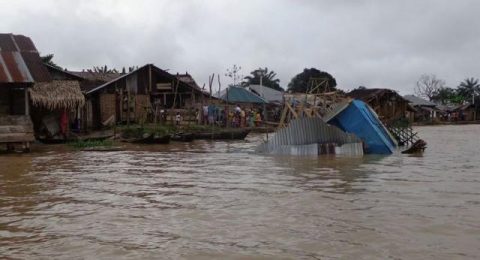In a show of solidarity and corporate social responsibility, several banks have mobilized resources to support communities affected by recent floods across Nigeria. The initiative aims to alleviate the hardships faced by flood victims, many of whom have been displaced or have lost their livelihoods.
Relief Efforts by the Banking Sector
Responding to the widespread devastation caused by the floods, banks have taken proactive measures, including:
- Distribution of Essential Supplies: Relief packages containing food items, clean water, hygiene products, and clothing have been distributed to displaced families.
- Financial Assistance: Some banks have provided monetary support to affected communities to help them rebuild their lives.
- Health and Sanitation Support: Mobile medical teams and sanitation kits have been deployed to prevent disease outbreaks in overcrowded camps.

Key Contributions
- Collaborative Efforts: Many banks have partnered with non-governmental organizations (NGOs), state governments, and local authorities to ensure the timely delivery of relief materials.
- Tailored Support: Specific needs such as school supplies for children in affected areas and tools for farmers to restart agricultural activities have also been addressed.
Flood Impact and Response
The floods have displaced thousands, destroyed homes, and disrupted livelihoods in multiple states. Victims have highlighted the urgent need for shelter, clean water, and medical assistance. The banking sector’s intervention has provided much-needed relief while highlighting the role of private organizations in disaster management.
Community Feedback
Beneficiaries have expressed gratitude for the support received, emphasizing the importance of such initiatives in times of crisis. Community leaders have also called for sustained efforts to rehabilitate flood-hit areas and to invest in long-term solutions to prevent future disasters.
Moving Forward
The banks have pledged to continue their support through:
- Disaster Preparedness Funding: Establishing funds to address future emergencies.
- Rehabilitation Projects: Collaborating with government and private entities to rebuild infrastructure and restore livelihoods.
- Public Awareness Campaigns: Promoting environmental management and climate adaptation strategies to minimize the impact of future floods.
Conclusion
The banking sector’s swift response to the flood crisis underscores the importance of corporate responsibility in addressing humanitarian challenges. As relief efforts continue, collaboration between private and public sectors will be crucial in supporting affected communities and building resilience against future disasters.
Support InfoStride News' Credible Journalism: Only credible journalism can guarantee a fair, accountable and transparent society, including democracy and government. It involves a lot of efforts and money. We need your support. Click here to Donate
